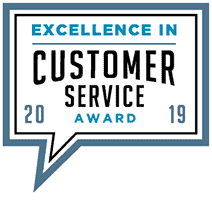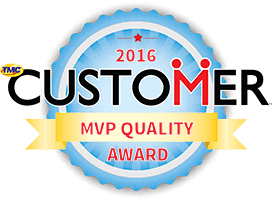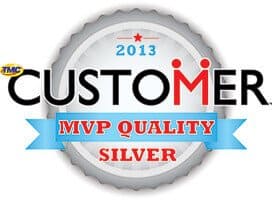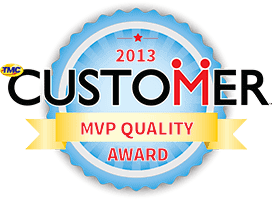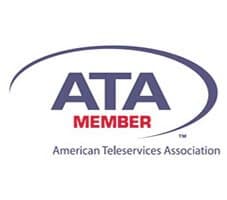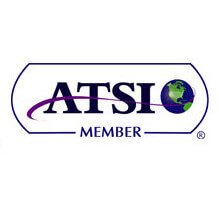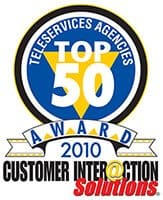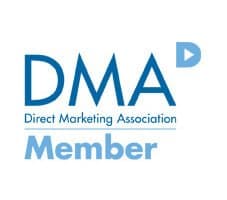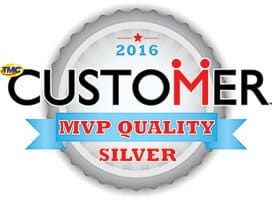Many companies rely on call centers to help field inbound calls and execute the right outbound strategy that is both friendly and helpful while handling all customer communication for the company.
This task is a tall order for any call center. Being able to provide excellent customer service while being the face of a business can be challenging. To ensure that call center agents act professionally and provide the best possible service to each customer, call center quality assurance has been added to the radar for most companies.
At Ansafone, we embrace quality control as a tool to ensure we provide our customers with the best possible customer service.
What is Call Center Quality Assurance?
Quality assurance call monitoring is an essential factor for each call center. Managers and specialists in the call center need to spend time tracking operations to ensure that each customer who either calls or receives a call gets a positive experience each time. The quality department must help keep costs low by finding how to make their agents more efficient at their jobs.
Many customers will run away when they receive poor service from a call center. No manager wants to give up on quality assurance and find out that their agents have chased many customers away from a business. Quality assurance can help make sure that does not happen.
What is Involved in Quality Monitoring?
Several steps come with monitoring quality assurance in any call center. It isn’t just about listening to a few conversations here and there to find problems. It is more about consistently focusing on customer satisfaction to provide the best to the customers. It is also about refocusing and training agents to give them the right skills to deliver exceptional service to your customers. Some of the ways that managers can make all of this happen includes:
Monitor Calls
The first and most obvious step is to monitor calls. This call monitoring is one of the best ways for managers to see what their agents are doing and see any problems. Take some time to listen in on calls in person as they happen and some recorded calls.
This type of auditing can tell you different information. Some agents may purposely perform better when they know you are listening in, and you can catch problems on recorded calls that you would miss in person. The same is true the other way; some employees may get nervous, and listening to some calls when they are not under pressure can help you see how they truly perform.
Make Sure Agents Meet Compliance Rules
There are many specific rules call centers need to follow to protect their customers. The FTC also has several criteria that you must make sure your agents adhere to, including:
- Consenting to call monitoring: The law dictates that, at a minimum, one person is aware that they are recorded and agrees to it during the conversation. Some states require all parties to have this information.
- The Do Not Call Registry: This regulation allows customers to get away from telemarketing calls. Call centers need to stick to this list, or they get fined.
- The Payment Card Industry Data Security Standard: This is a long name that means each agent at a call center has to follow set standards to process any credit card payment.
- Truth in Lending Act: For this regulation, call centers need to fully inform their customers about late fees, terms, interest rates, and anything else that may affect the customer in terms of their loan.
If one or more of these pertains to your call center, everyone must be appropriately trained on how to handle these situations. The right training, with lots of examples on handling each situation, can avoid issues and hassles along the way and make the customer experience better for anyone who calls in.
Develop Some Scorecards
Agents and managers should come together to create scorecards to help keep track of each agent’s effectiveness using measurable benchmarks along the way. Each agent should have the flexibility to develop standards and their managers and anyone working as a QA specialist in the company. Agents must also know what is included in the scorecard, and they must understand why adhering to the scorecard does matter.
Why Have a Scorecard?
Many call centers that start to work with QA decide to work with a scorecard they use with their agents after monitoring calls. The reason for this is to help agents see how well they match up to the different critical components that are now necessary for part of the job. It is an excellent way to keep tabs on where improvements are necessary and when improvements have been made.
These scorecards help you to keep up with standardization. For any data to be reliable, you need to collect it in a standardized way. A scorecard enables you to complete this easier. Your agents will know what to expect and can look to see some of their own improvements over time as well. Just make sure there is a way for your team to dispute the evaluation if they feel something is unfair.
Provide Feedback
It is essential to spend time providing feedback to your agents as well. It is not enough to tell them they are doing poorly on something. Explain why they may have done poorly on something and then walk them through some of the simple steps they can work on to see improvements. Even if the agent has done well in a particular area, discuss with them why their ranking is higher and what they may need to do to maintain that higher ranking.
How to Implement Call Center Quality Assurance
All management in a call center needs to make quality assurance a vital part of the process. This is because optimizing QA will make sure that you provide the best quality of service to the customers. It will also help your team become more efficient so no time is wasted in the process. When you look at this completely, you will find that these QA practices will help your agents do a better job while giving you a leg up on the competition.
Some of the techniques that you can use to optimize your QA approach includes:
- Appoint a specialist to create a QA program and oversee its implementation in your company.
- Share the QA process with your team and help provide training as needed. Role-playing and concrete examples of specific situations your agents may encounter can help them be more prepared.
- Look at customer feedback and implement this into the plan. Share feedback with your agents to understand where they need to improve and where they are already doing a great job.
- Take the time to assess the performance of your team, department, and even individuals. This helps determine whether improvements are necessary.
- If an agent struggles with making improvements based on a QA plan, consider a remediation plan. You may find that having shadowed another agent who performs above average can help them to learn how to properly handle customer calls.
- Have ongoing training to handle new systems and any new information that becomes available over time.
Measuring the Call
During quality assurance, the manager may choose to measure one of the calls to see how the agent does. There are a number of things that the manager may need to check on to ensure the customer has a great experience. For example, you may check to see how friendly the greeting was and if it included all the relevant information for the company.
As the call goes on, there are other things that the manager may look for to maintain quality assurance. They may make sure the agent is friendly and courteous the whole time. If there is a script to follow, the manager can check to see that the script is followed well. Clear and concise language that is friendly and shows an interest in the customer may be necessary, as is upselling if the call requires it. A good closing that is not rushed but still friendly should be included as well.
Having categories for each of these will make it easier to grade each agent based on their skills. You can have different levels based on how well the agent does or focuses on a pass/fail idea where the agent either does the job well and passes or does poorly and fails. Any time the agent does poorly in one or more categories, make sure to discuss these issues with the agent and provide proper training to fix these issues.
Quality assurance is not just about providing great customer service to each customer who interacts with a business, though this is a big part of it. It is also about helping your agents understand what is expected of them and how to perform their job well. When the right quality assurance process is in place, everyone will understand their role and there is no longer any confusion present.
About Ansafone Contact Centers
Ansafone Contact Centers is an award-winning BPO provider with 50 years of world-class customer experience and brand care. We are a national call center with omnichannel services, fully equipped to help you with your business and with any special circumstances.
Please request a quote or call 800-510-0514 to learn more about our custom solutions for creating exceptional customer service experiences for your clients. We’re happy to offer insight into what your customers seek from your company’s language offerings and tailored customer solutions.


